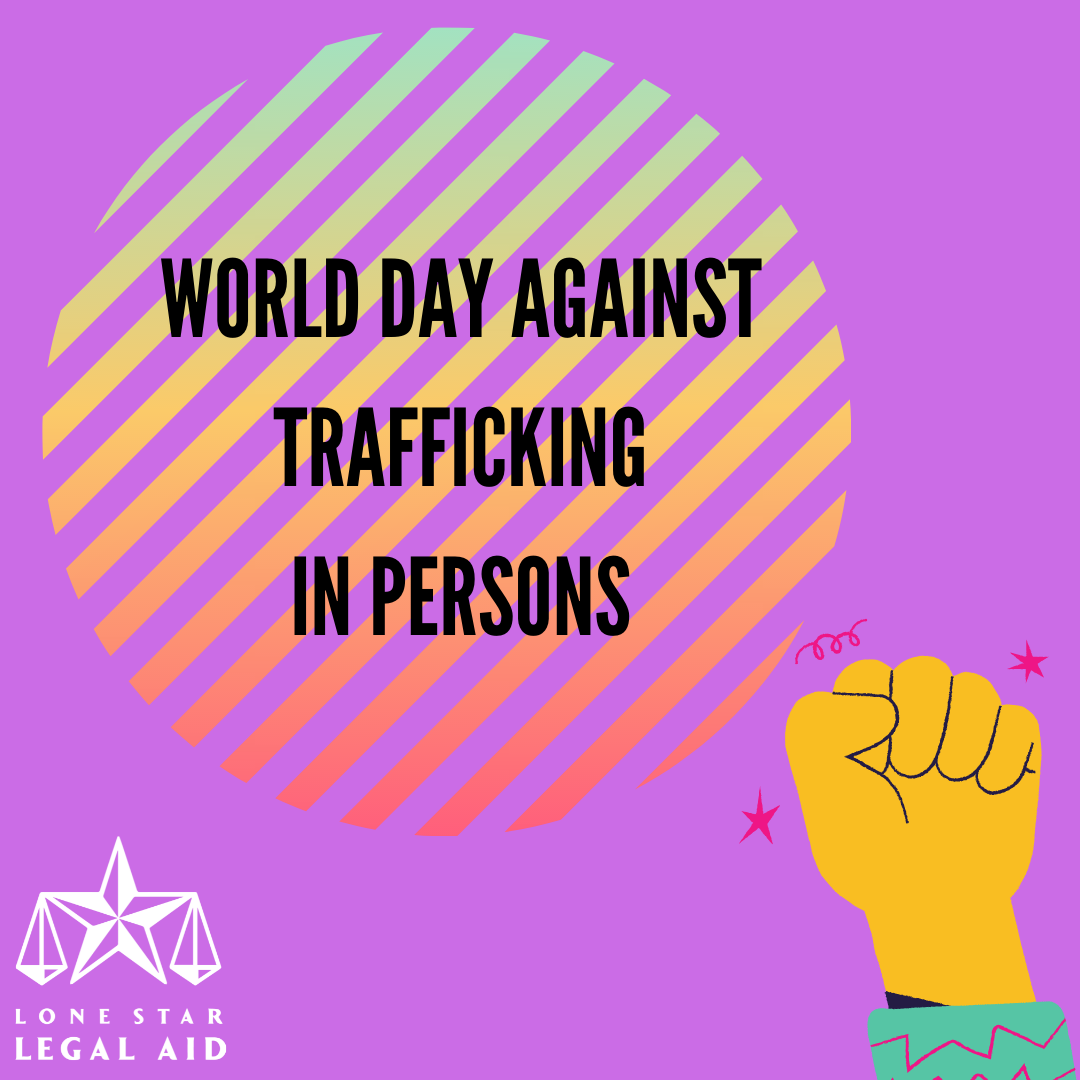
Overview
Each year at the end of July, we recognize World Day Against Trafficking in Persons. Trafficking is a serious crime and violation of human rights. Thousands of men, women and children fall into the hands of trafficking in their own countries and abroad. You can be a part of World Day Against Trafficking by jumpstarting the conversation to put an end to trafficking worldwide.
With the widespread lack of awareness and understanding of slavery and human trafficking, more men, women and children are being exploited, bringing in an alarming revenue of billions of dollars for traffickers. There are 40.1 million victims of human trafficking globally with hundreds of thousands of victims right here in the United States. To forego keeping this a hidden crime and save the lives of innocent men, women and children, it is vital to raise awareness about human trafficking and put an end to this horrific crime.
What is human trafficking?
Human trafficking is the recruitment, transportation, transfer and storage of people by using forceful threats, abduction, fraud, deception, and abuse of power. Traffickers receive payments or benefits for controlling people for the purpose of exploitation. Human trafficking is a grave violation of human rights and leads as the third largest international crime. The purpose of exploiting humans is to use them for prostitution, pornography, forced and child labor, and the removal of organs.
How are victims affected?
Victims who escape are often greatly traumatized about their encounter. Victims are often afraid to report their abuser, making human trafficking a hidden crime. Trafficking can cause psychological damage in which victims struggle with shame, grief, fear, anxiety, inability to trust, and suicidal thoughts.

Local response resources
In the Houston area, the Houston Police Department has its own Human Trafficking and Criminal Investigation Unit/ Harris County Sheriff’s Department has a Criminal Investigations Bureau which handles undercover investigations of human trafficking crimes.
If you live in Houston and would like to report a crime to Houston’s Crime Stoppers, please call 713-222-TIPS.
The City of Houston’s Anti-Human Trafficking Strategic Plan lays out the nation’s first comprehensive municipal response to human trafficking. To access the strategic plan, please click the link. https://humantraffickinghouston.org/strategic-plan/
Call the National Human Trafficking Hotline: After contacting law enforcement, call the hotline at 1-888-3737. You can also text Help or Info to 233733. Or you can reach the hotline by email: Report@PolarisProject.org
you or a loved one is in need of help, you can apply for free legal help online at www.lonestarlegal.org or over the telephone at 1-800-733-8394. If you or a loved one are experiencing abuse and need assistance, self-help resources are available via www.texaslawhelp.org. If you or a loved one are in need of an attorney or would like to explore other resources, you can visit the Texas Crime Victim Legal Assistance Network.
Lone Star Legal Aid is a 501(c)(3) nonprofit law firm focused on advocacy on behalf of low-income and underserved populations. Lone Star Legal Aid serves millions of people at 125% of federal poverty guidelines that reside in 72 counties in the eastern and Gulf Coast regions of Texas, and 4 counties of southwest Arkansas. Lone Star Legal Aid focuses its resources on maintaining, enhancing, and protecting income and economic stability; preserving housing; improving outcomes for children; establishing and sustaining family safety and stability, health and well‐being; and assisting populations with special vulnerabilities, like those who have disabilities, or who are elderly, homeless, or have limited English language skills. To learn more about Lone Star Legal Aid, visit our website at http://www.lonestarlegal.org.
Media contact: media@lonestarlegal.org
